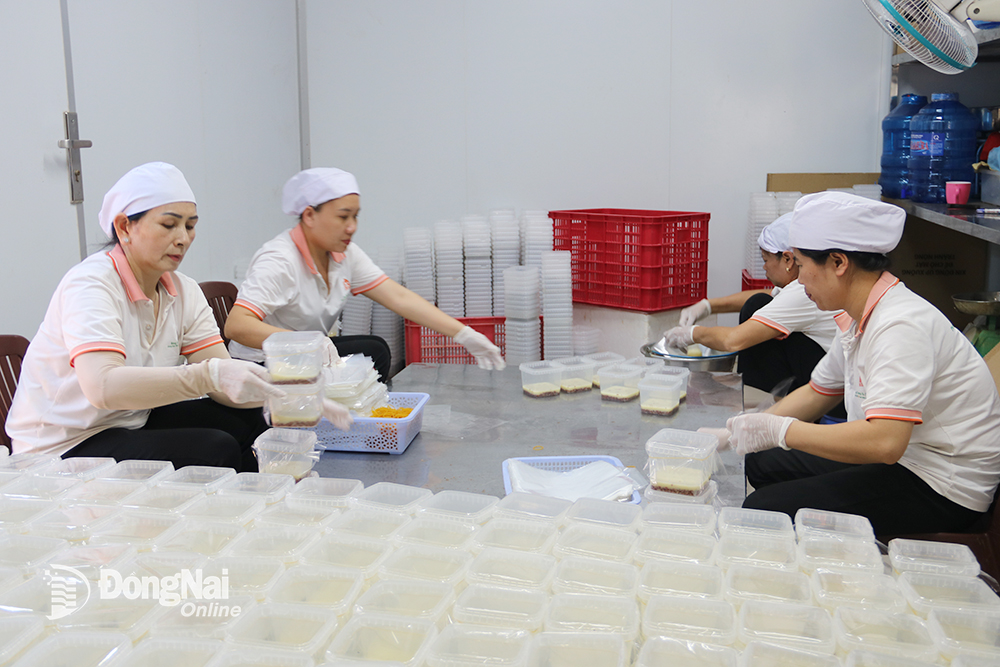
Dong Nai: Industrial promotion fuels sustainable industrial growth
19:05 | 23/03/2025 21:20 | 06/11/2025Industry
The information was shared by Mr. Luke Treloar, Managing Partner and Head of Healthcare and Life Sciences Strategy Consulting at KPMG Vietnam, during the seminar titled “Future Value of the High-Quality Generic Drug Market,” organized by the Dai bieu Nhan dan Newspaper on the morning of November 5.
High-quality generics can cut treatment costs by up to 40%.
The report, “Future Value of the High-Quality Generic Drug Market,” published by KPMG Vietnam, highlights that Vietnam is entering a period of rapid population aging, with the percentage of elderly people projected to increase by an additional 3.6% by 2034, consequently driving a strong rise in demand for healthcare and drug consumption.
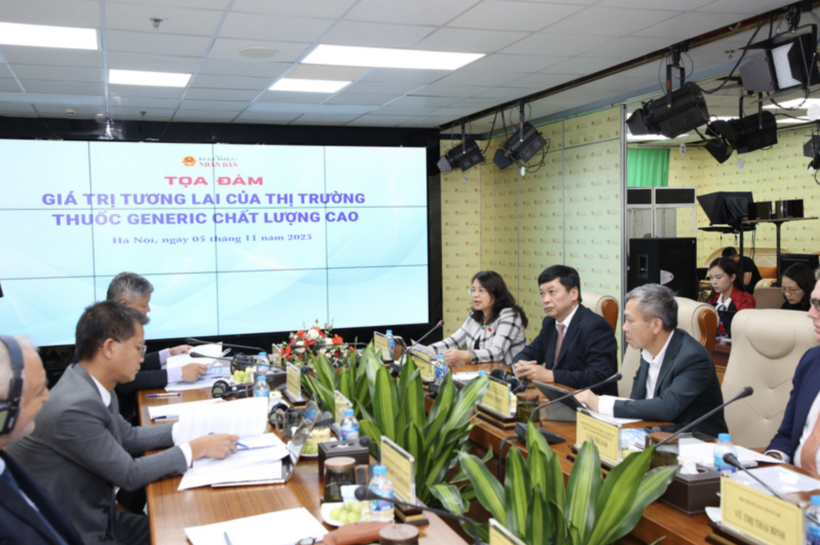
Overview of the Seminar. Photo: Duy Thong
According to Mr. Luke Treloar, Managing Partner and Head of Healthcare and Life Sciences Strategy Consulting at KPMG Vietnam, Vietnam has achieved universal health insurance coverage and built a robust healthcare system. However, in the context of an aging population, the healthcare budget increasingly faces pressure.
In this scenario, the development of high-quality generic drugs becomes a strategic solution.
Mr. Treloar emphasized: “Generic drugs help reduce costs, maintain affordability for the public, while supporting the healthcare system to become more sustainable and inclusive.” Experience from 12 European countries between 2005 and 2014 showed that generics resulted in a 49-69% reduction in daily treatment costs, concurrently broadening access to healthcare services.
The KPMG report noted that Vietnam's pharmaceutical market grew from $4 billion in 2019 to a projected $9.2 billion in 2029. Generic drugs played a dominant role, increasing their market share from 55.2% in 2019 to 62.4% in 2029, with a Compound Annual Growth Rate (CAGR) of 11% during the 2019-2024 period. Conversely, branded drugs grew slower, at only 7%, reaching USD 1.4 billion by 2029.
Notably, Vietnam's generic drug market is also rated as one of the most dynamic markets in Asia. During the 2019-2024 period, the average growth rate reached 9.1%, ranking third in the region, trailing only China (12.8%) and Singapore (9.3%).
This growth rate is projected to accelerate to 9.7% during the 2024-2029 period, positioning Vietnam as the fastest-growing generic drug market in Southeast Asia. However, the average per capita expenditure on generic drugs remains modest, at only USD 35.9 in 2024, indicating significant room for growth, especially as income and healthcare demand increase.
Vietnam is transitioning from low-to-middle income status, with per capita income increasing by 5.9% annually, and is expected to rise by 8.9% per year over the next five years. The expansion of the middle class and improving living standards are facilitating better public access to pharmaceutical products and healthcare services. The National Strategy for Pharmaceutical Industry Development aims to transform Vietnam into an ASEAN pharmaceutical hub by 2030, focusing on enhancing domestic production capacity, drug quality, and exports.
According to KPMG, Vietnam's generic drug market is forecasted to reach USD 13.1 billion by 2039. If policy reforms concerning regulations, investment, and incentives are effectively implemented, the industry could grow by 15-20% annually, reaching a market size of USD 29-55 billion, thereby positioning Vietnam as a leading pharmaceutical hub in Southeast Asia.
Regarding economic contribution, if the current growth rate is maintained, the generic drug sector will contribute USD 4.4 billion to the GDP by 2039. With 15% annual growth, this figure would reach USD 9.4 billion, and if it increases by 20% annually, the GDP contribution could soar to USD 20.1 billion.
In total, the generic drug industry could contribute USD 66.5 billion to the national GDP, including USD 20.1 billion in direct value from manufacturing, distribution, and sales; USD 24.2 billion in indirect contributions through the supply chain; and USD 22.2 billion from the induced impact of consumer spending.
“These figures demonstrate that, with appropriate policies, generic drugs are not only a cost-effective healthcare solution but also a key economic sector, enhancing competitiveness and accelerating Vietnam's goal of becoming the region's pharmaceutical hub,” the KPMG expert stated.
Drug quality is an uncompromising necessity
Despite its strong development potential, Vietnam’s pharmaceutical industry must overcome several barriers to realize the goal of producing high-quality generic drugs, ranging from manufacturing capacity and administrative procedures to market efficiency.
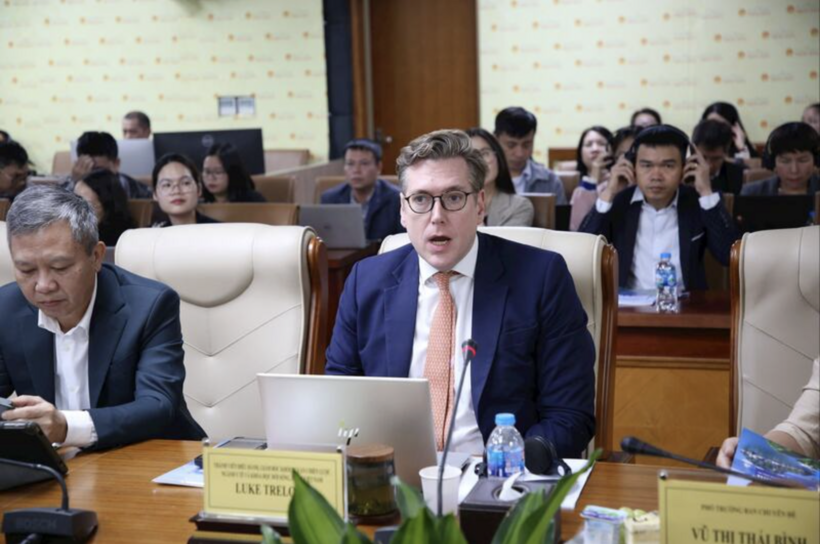
Mr. Luke Treloar, Managing Partner and Head of Healthcare and Life Sciences Strategy Consulting at KPMG Vietnam, delivers a speech. Photo: Duy Thong
Mr. Luke Treloar, Managing Partner and Head of Healthcare and Life Sciences Strategy Consulting at KPMG Vietnam, stated: According to KPMG, Vietnam currently has 288 pharmaceutical manufacturing facilities, yet only 20 meet the stringent EU-GMP standard, comprising 12 domestic and 8 foreign-invested enterprises. This figure clearly reflects the gap in technology, governance, and investment compared to countries with developed pharmaceutical sectors.
The high cost of achieving EU-GMP compliance is the biggest challenge, requiring infrastructure upgrades, technology investment, and maintenance of international certification. Most small and medium-sized domestic enterprises struggle to access preferential capital, slowing down the international production expansion process and restricting both competitiveness and pharmaceutical self-sufficiency.
However, legal barriers are also significant. Currently, the drug registration process takes 24-36 months, which is two to three times longer than in many ASEAN countries. This delay hinders the timely market entry of generic drugs, increasing production costs and limiting public access to affordable medicines. While the current drug pricing policy facilitates easier patient access, the low profit margins restrict enterprises from reinvesting, undertaking technological innovation, and expanding production.
Mr. Gregory Charitonos, Chairman of the European Standard Medicines Sub-Committee (EuroCham), emphasized that in Europe, maintaining high and harmonized standards is a key factor in building a sustainable pharmaceutical industry capable of global competition. “With the ambition to become the region's pharmaceutical export hub, Vietnam should view EU-GMP compliance not as a barrier, but as the minimum and necessary foundation for the industry's development,” he stated.
Sharing the same view, Mr. Attila Molnar, Vice Chairman and Treasurer of the European Standard Medicines Sub-Committee (EuroCham), argued that not all generic drugs are equal in terms of safety, efficacy, and manufacturing reliability. The EU-GMP standard ensures drugs are manufactured in a strictly controlled environment, with stable processes and transparent data, thereby maintaining patient trust and the credibility of pharmaceutical regulation. If products that do not meet these high standards are still considered equivalent, it will undermine patient confidence, lead to inconsistent treatment outcomes, and affect the reputation of healthcare governance.
EuroCham experts proposed that Vietnam implement a fast-track review mechanism, mutual recognition for drugs already approved in the EU or the US, simplification of technical dossiers, tax and investment incentives, and the implementation of training and technology transfer programs. These reforms would not only reduce the administrative burden and attract domestic and foreign capital but also enhance competitiveness, promote pharmaceutical self-sufficiency, and help Vietnam move closer to its goal of building a modern, deeply integrated pharmaceutical industry.
At the seminar, National Assembly delegates affirmed that drug quality is non-negotiable. The overarching spirit of the 2024 Law on Pharmacy and the National Strategy for Vietnam’s Pharmaceutical Industry Development to 2030, with a vision to 2045, is to proactively supply drugs that are high-quality, safe, effective, and reasonably priced, serving the public health and socio-economic development needs optimally.
To achieve this goal, besides focusing on the development of innovator drugs or specialized treatment product lines, Vietnam needs to expand preferential policies for high-quality generic drugs. Concurrently, ministries and sectors must review and simplify drug inspection and dossier approval procedures, ensuring transparency and shortening the evaluation time while still adhering to international standards.
Experts concluded that a harmonized and transparent legal framework will be the foundation for developing the high-quality generic drug market. This, in turn, will stimulate new growth for the pharmaceutical sector and expand public access to safe, effective, and reasonably priced medicines.

19:05 | 23/03/2025 21:20 | 06/11/2025Industry
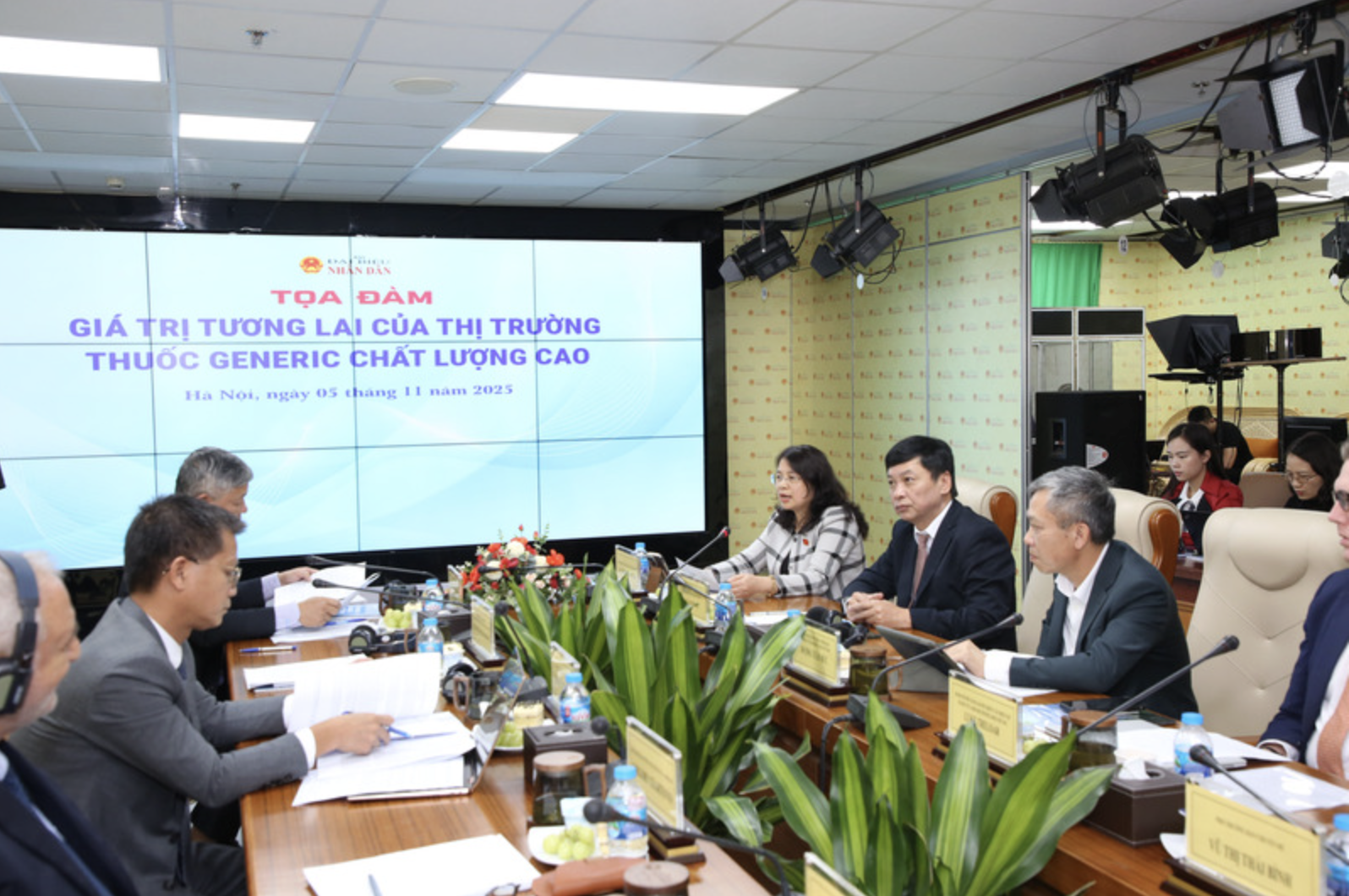
19:05 | 23/03/2025 21:16 | 06/11/2025News and Events
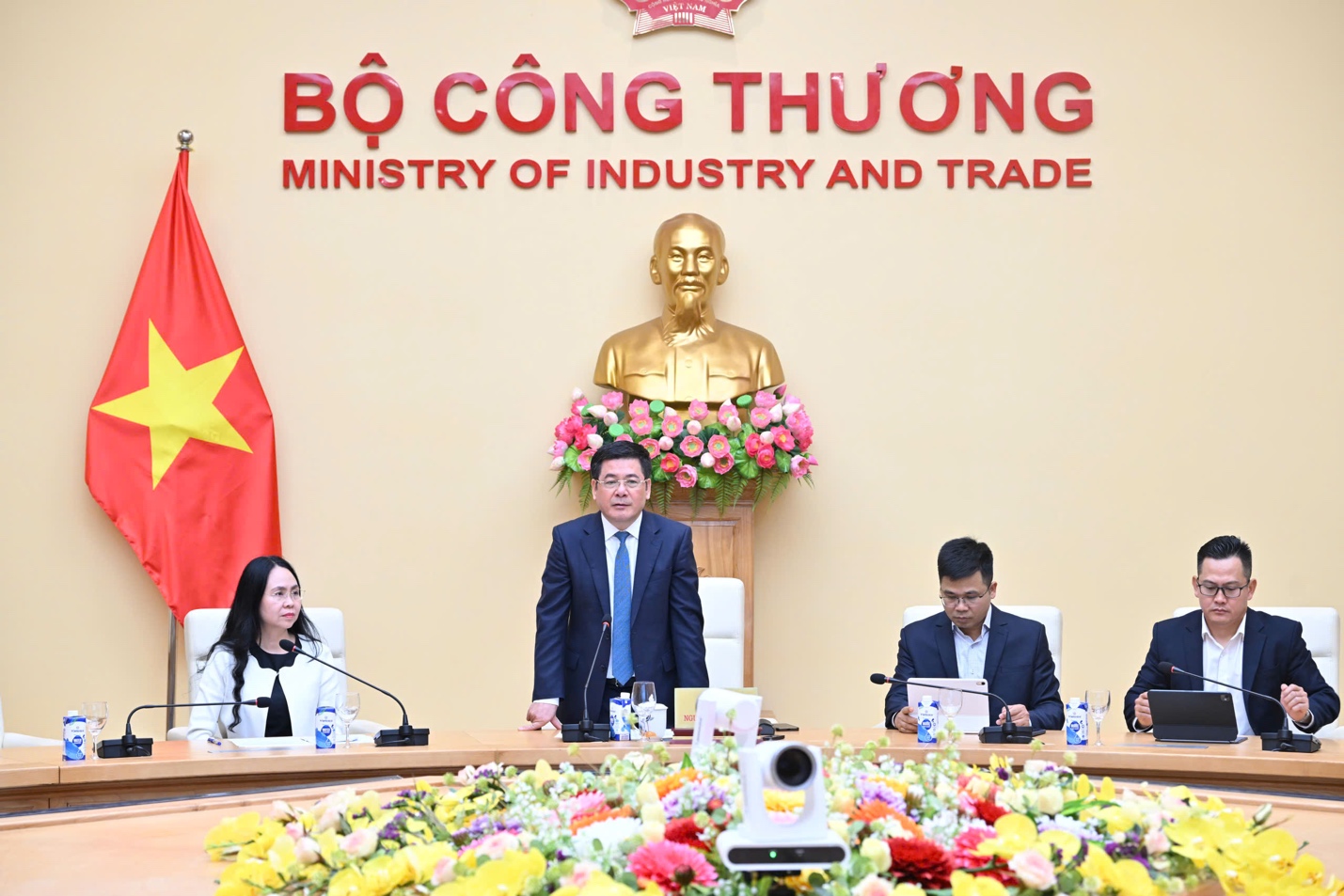
19:05 | 23/03/2025 20:56 | 06/11/2025News and Events
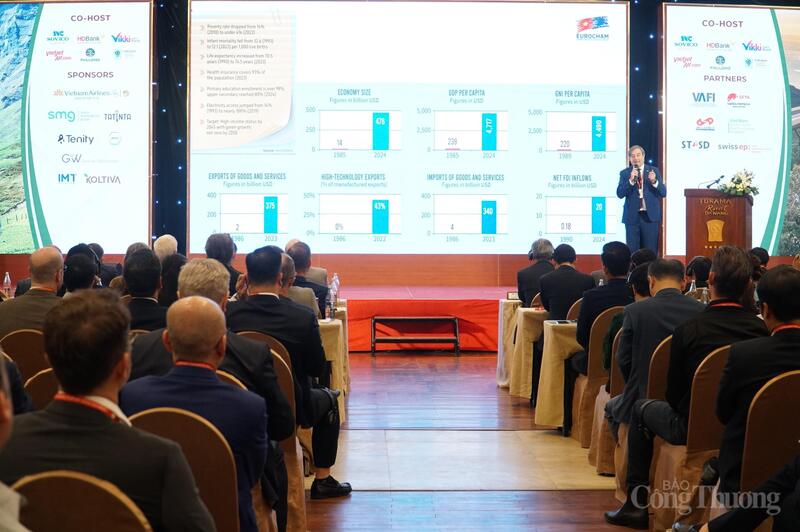
19:05 | 23/03/2025 20:37 | 05/11/2025Trade

19:05 | 23/03/2025 20:00 | 05/11/2025Society